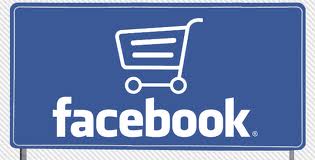By Doug Stephens
Bloomberg recently suggested that F-Commerce (as it’s come to be known) has been failure. They pointed to retailers like GAP and JCPenney beating a path out of Facebook, citing their disappointing results.One Forrester researcher was quoted as saying that selling on Facebook is “like trying to sell stuff to people while they’re hanging out with friends at a bar.” , implying that Facebook was simply too social to be worth a retailer’s time.
So, while only a year ago most were hailing Facebook as the new frontier of retail, it seems to quickly be becoming a ghost town, as brands and retailers shutter their f-stores.
Advertising Still Sucks
But consider this; how many commercials on TV last night were memorable? How many ads in the magazine you read last week stood out? How many retail experiences in the last month left you delighted and rushing to tell friends about it? Can you remember any? My bet would be not many and perhaps none.
So should we really be surprised then that consumers have been largely unimpressed with the efforts of retailers on Facebook? After all, most have done little more than transplant versions of their online advertising collateral to Facebook. Why should we as consumers be excited? If the truth be known, neither GAP nor JC Penney has done much to excite customers for at least decade or two, so can we really blame Facebook for the failure of their F-Stores?
Beyond the Like Button
If we’re honest about it, most retailers simply are not being creative enough. Almost none have woven their products skillfully into the social mechanics of Facebook. And I can’t think of one that makes it fun or cool to shop with friends in their Facebook stores.
The vast majority of brands haven’t figured Facebook out yet. And who can really blame them. Most are coming off a hundred years or so of what author Seth Godin refers to as The TV Industrial Complex – the marketing construct in which the goal was to advertise on TV so you could sell enough product to buy more TV advertising and all in an effort to interrupt consumers as many times as possible. There was no need for brands to be interesting or creative. As long as they could keep buying lots of advertising, they succeeded.
Facebook doesn’t work that way. It isn’t TV and in many ways it isn’t even the web. It’s different, it’s organic and living. And perhaps what’s got marketers most freaked out is that Facebook tells you when you’re boring, when you need to work harder. It’s almost immediate in passing its judgement on your creativity or lack thereof. Scary stuff for an industry accustomed to monologuing with consumers.
Shopping IS Social
I still maintain that one day, Facebook (or its successor) will be recognized as one of history’s great shopping venues but marketers are going to have to be far more ingenious, inclusive and socially sensitive in their approach. That doesn’t mean putting like buttons on ads and calling it a day. It’s means creating amazing digital architecture that lets people go shopping with their friends. It’s about staging exciting Facebook events people can share with their friends and family. It’s about crafting unique, memorable and socially sticky content that people can’t get anywhere else. It means NOT advertising.
As for the belief that social hangouts can’t be places of commerce, it’s simply unfounded. In fact, we have only to look as far as the local market, mall or Main Street to understand just how social shopping really is. Shopping is and always has been as much a product of sociology as it has been a driver of commerce. The two are joined at the hip.
All of this is more than just a mere tweak for marketers. It’s a massive and historic shift. In essence it’s a transition out of the industrial advertising era into a new and enlightened age of marketing. And it may be a transition that not all brands are capable of making and frankly, perhaps that’s a good thing.


